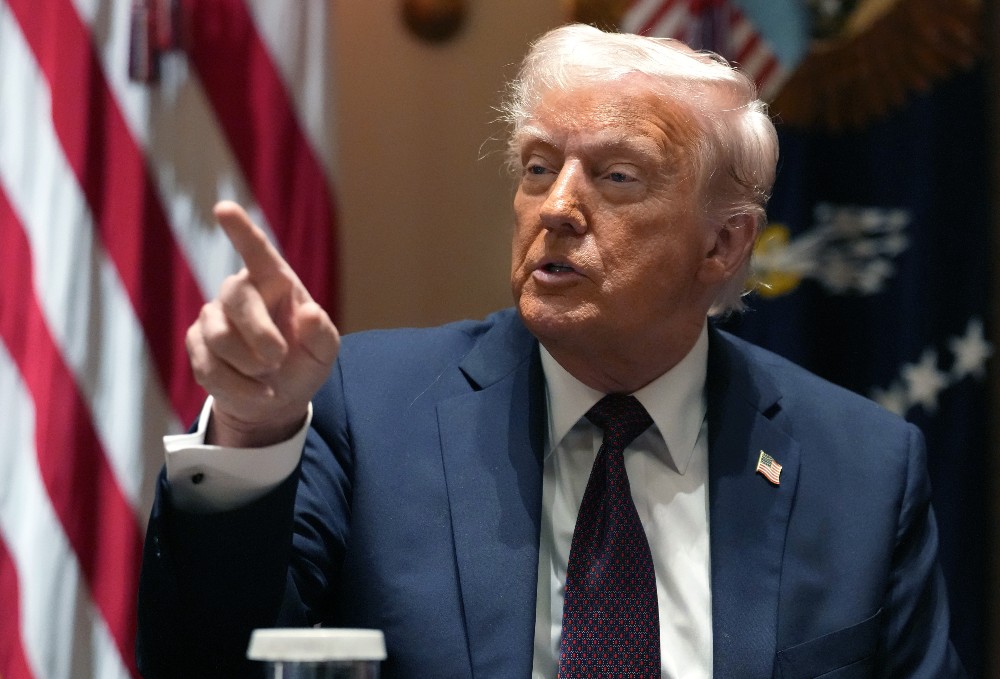Physical Address
304 North Cardinal St.
Dorchester Center, MA 02124
Physical Address
304 North Cardinal St.
Dorchester Center, MA 02124

With one week to go before the administration’s April 2 tariff deadline, President Donald Trump appears to be tempering expectations for America’s “Liberation Day.”
Commerce Secretary Howard Lutnick is scheduled to brief the president on a range of trade and tariff issues early next week, after which point Trump has said he will announce a plan to impose duties on nations across the globe.
While he’s said that these duties will be equivalent to the tariffs they impose on U.S. goods, Trump told anchor Greg Kelly in an interview Tuesday with Newsmax, “I’ll probably be more lenient than reciprocal, because if I was reciprocal, that would be very tough for people.”
“I may give a lot of countries breaks,” he added. This, following reports from the White House over the weekend that the duties will likely be more limited in scope than previously expected.
But when he was asked if there will be significant exceptions to the broad and wide-ranging duties, Trump answered in the negative. “No, I don’t want to have too many exceptions. Look, we’ve been ripped off for 45 years by other countries,” he said. “We always were soft and weak.”
Trump claimed that the $36-trillion national debt has ballooned due to trade policy that has allowed the U.S. to be “ripped off” by its trading partners, including “so-called friends” like the European Union. The president also called out China in his remarks.
Duty deferrals on Mexican and Canadian products, at a rate of 25 percent, are expected to expire on Wednesday, meaning that those tariffs will take effect unless the president decides to further delay their implementation.
In the lead up to the Liberation tariff frenzy, certain U.S. trading partners are scrambling to appease the White House with promises to address trade imbalances.
Vietnam on Tuesday announced plans to slash duties on U.S.-made imports, including liquefied natural gas, automobiles and ethanol by about half of the current rate per category. In a statement on the Vietnam Finance Ministry’s website, director Nguyen Quoc Hung wrote that the duty cuts were imposed with the goal of “improving trade balances with [Vietnam’s] trade partners.” Vietnam’s trade surplus with the U.S. totaled $123 billion in 2024.
Meanwhile, the government of Bangladesh announced last week that it plans to import more cotton from U.S. farmers as a means of addressing a $6.2-billion trade imbalance. The country represents the fifth-largest export market for American-grown cotton, with export values topping $339 million in 2023, according to the U.S. Department of Agriculture.
Markets saw some decline Wednesday after rallying Monday following the news that Trump’s April 2 tariff rollout might be less robust than previously thought. The S&P 500 fell 0.76 percent, about 41.3 points, while the Nasdaq Composite fell 1.58 percent, or 289 points. The Dow Jones Industrial average traded 0.017 percent higher, a gain of about 7 points.
Federal officials—some in Trump’s own party—have been increasingly dubious about the White House’s tariff strategy. Senator Rand Paul (R-Ken.) has been privately trying to galvanize Republican lawmakers against the proposed duties, according to a report from Time.
Meanwhile, Federal Reserve Chairman Jerome Powell last week said that tariffs—or the looming threat of tariffs—have contributed to a “good part” of price increases at retail.
“It’s the net effect of these policy changes that will matter for the economy and for the path of monetary policy,” Powell said. “Uncertainty around the changes and their effects on the economic outlook is high.”
The president has expressed his displeasure with the Fed’s decision not to lower interest rates in March. “The Fed would be MUCH better off CUTTING RATES as U.S. Tariffs start to transition (ease!) their way into the economy,” he wrote on Truth Social. “Do the right thing. April 2nd is Liberation Day in America!!!”